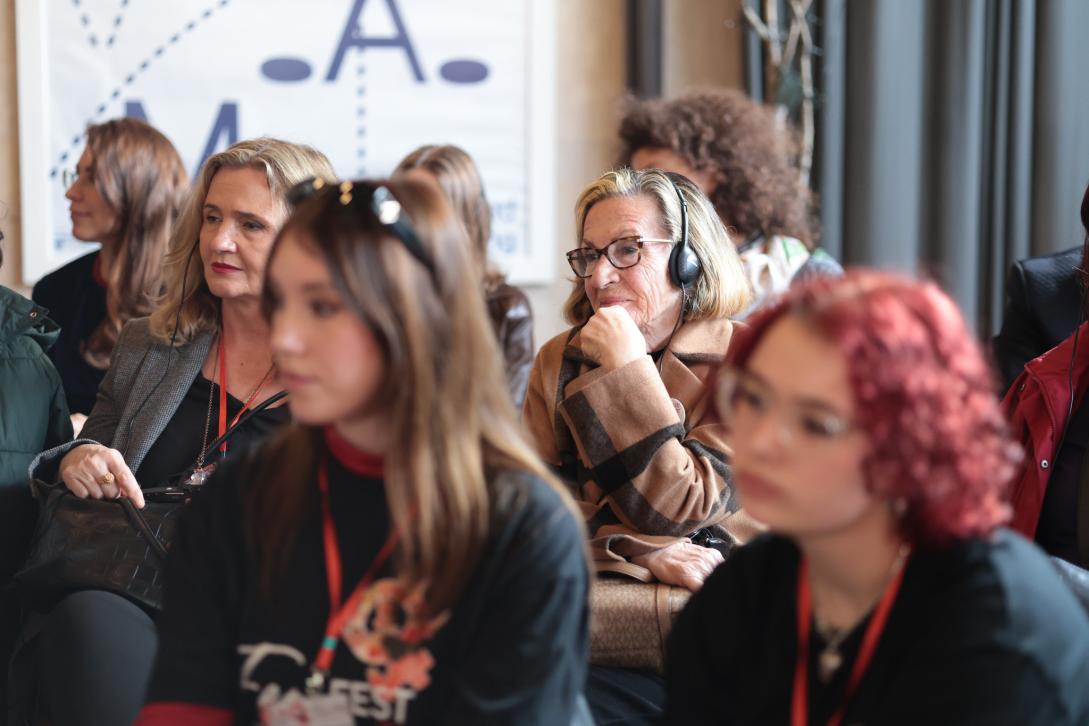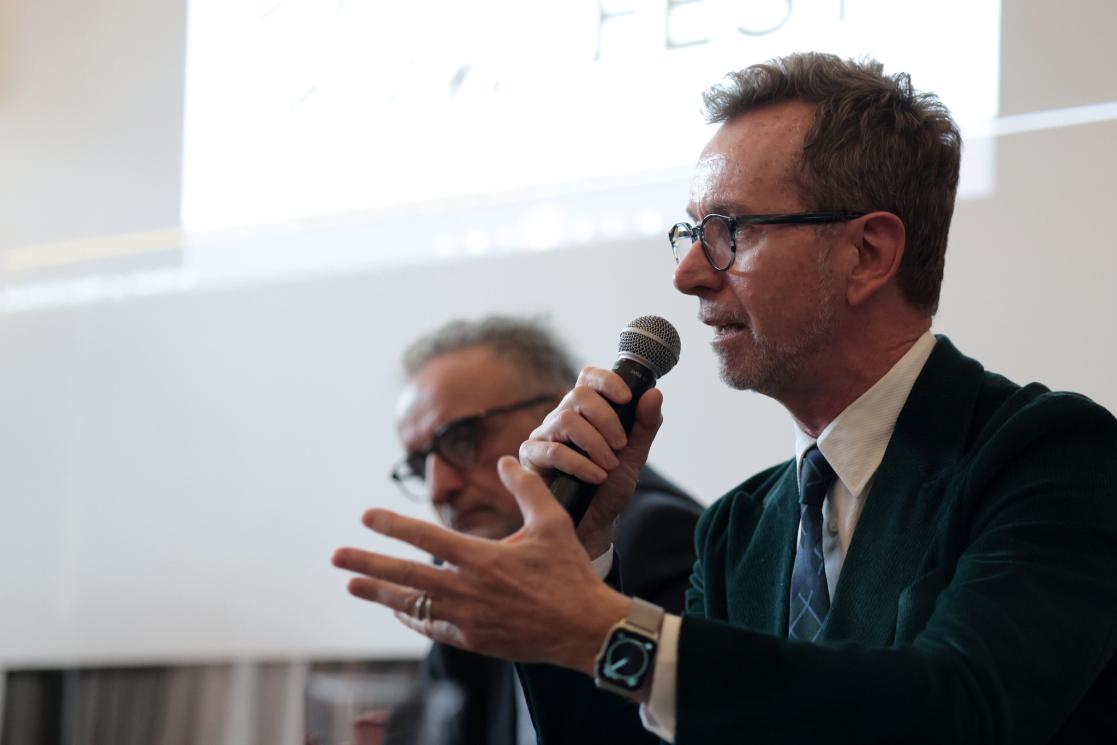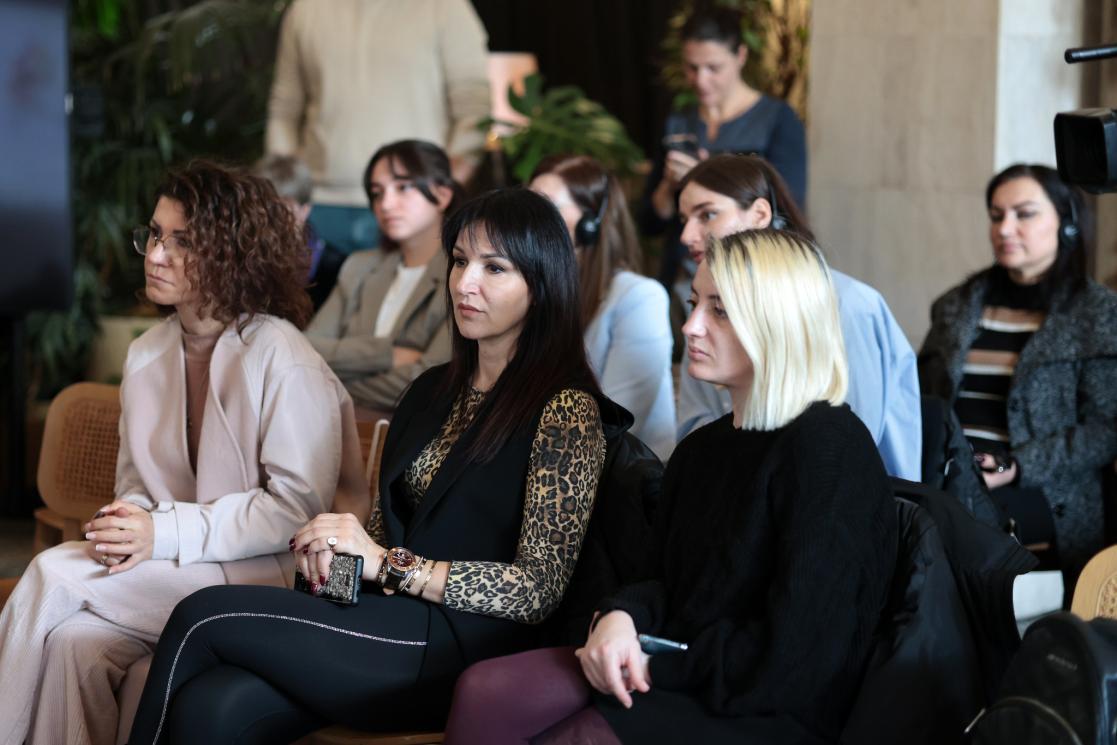A letter to men, how education and values shape our behaviour towards women

“I refuse to let my sons play with dolls. Men are supposed to be leaders, protectors, providers. I refuse to let my sons play with dolls because I don’t want them learning what’s like to have ownership over a woman’s body, thinking that all women are born with strings on their back that if you pull hard enough, will act the way you want”.
Albania’s FemFest founder Iliriana Basha reads the poem “Barbie” from Demetri Manabat to kick start the discussion “Letter to men” as part of the festival she organizes annually to raise awareness on violence against women.

EU in Albania
“Children should play with the toys they like regardless of gender”, Basha explains, “but the poem’s metaphor is very powerful for young people, who need to understand that girls are not dolls with strings on the back moving as you want them to. I have chosen it because I find the message very meaningful and because it’s a poem by a young man”.
The discussion is inspired by another man, Lis Bukuroca, who wrote two books, entitled “Letter to Men”, where he teaches young boys, men and elder men how to give their sisters, partners, wives and daughters plenty of affection and how to apologise to them. Recommending every male to read his letters, Bukuroca argues that there can be no happy family if the father behaves like a dictator.

EU in Albania
“As a child, I wondered how is it even possible for a parent to be an enemy? How is it possible that love is morally wrong and violence is morally right? When my father used to come home, we would hide under the tables or chairs, because the despot was coming in. You must know that you are a good husband and father, only when your wife and children feel happy that you are coming home.
We have a lot of reasons to apologise to women in our society. They gain their freedom, only when they grow old.
It is a freedom they no longer need when life comes to the end”, Bukuroca says.
The thoughtful discussion follows the idea of the book. An artist, a journalist, a doctor, a writer and two diplomats, in an all-men panel, share their personal experiences and their ideas on how we can best respect and protect women’s rights, rooting them in the culture of our societies.

EU in Albania
EU Ambassador Silvio Gonzato underlines the collective responsibility of the state through the schooling system as the vehicle to pass on values, not just notions. “Stereotypes start from the very beginning of our lives and that’s where we have to start intervening because they play an enormous role in the way children develop.
Education is absolutely fundamental: if we want to change, we really need to start with children. Only if we change the mindset of both – boys and girls - we can ensure that the society follows”,
Gonzato says.
Psychiatrist Neli Demi sees the phenomenon of violence as mainly an abuse of power that one individual has over another. “In a society fed on a subculture that allows abusers to get away with it, boys grow up with the right to be superior, while girls are expected to remain inferior. We must distinguish between being well-educated formally through schooling and being well-bred in terms of properly embracing values such as love and care for the other,” Demi says.

EU in Albania
“Too many men nowadays are trapped in the cage of toxic masculinity. They need help to unlearn aggressiveness and controlling women. Instead, they should learn empathy as key to happiness and self-fulfilment,” says Michele Ribotta UN Women Representative in Albania.
Journalist and writer Enkel Demi emphasises the importance of learning love - receiving love and giving love - as early as possible since childhood, as the best way to fight gender-based violence and to raise caring boys and men.

EU in Albania
Public communication on gender issues is key to singer Genc Salihu, who thinks of three ways to make it happen: “First, through academic and social science engagement in areas that affects gender issues. Then, through direct activism, institutional commitment and civil society actions such as FemFest and third, but very important, through everyone’s personal example.
It is essential to reflect on the privileges we have as men. We must ask for a cultural emancipation of men before we seek the emancipation of women”,
he affirmed.
The discussion looked at gender-based violence as an issue that goes beyond national borders and that is relevant everywhere in Europe. Encouraging people to speak up and helping women to break the glassed ceilings, which are often self-imposed, can only be achieved when men and women work together as allies.
“What makes a man manly, is the courage to express love openly… the courage to fight for it”, says Bukuroca, in an attempt to redefine strong men in today’s society.
FemFest took place between 4-8 March 2024 with the support of the EU Delegation to Albania, advocating for women’s rights and women empowerment through a programme of cultural events, including theatre, music, art exhibitions, and discussions.




